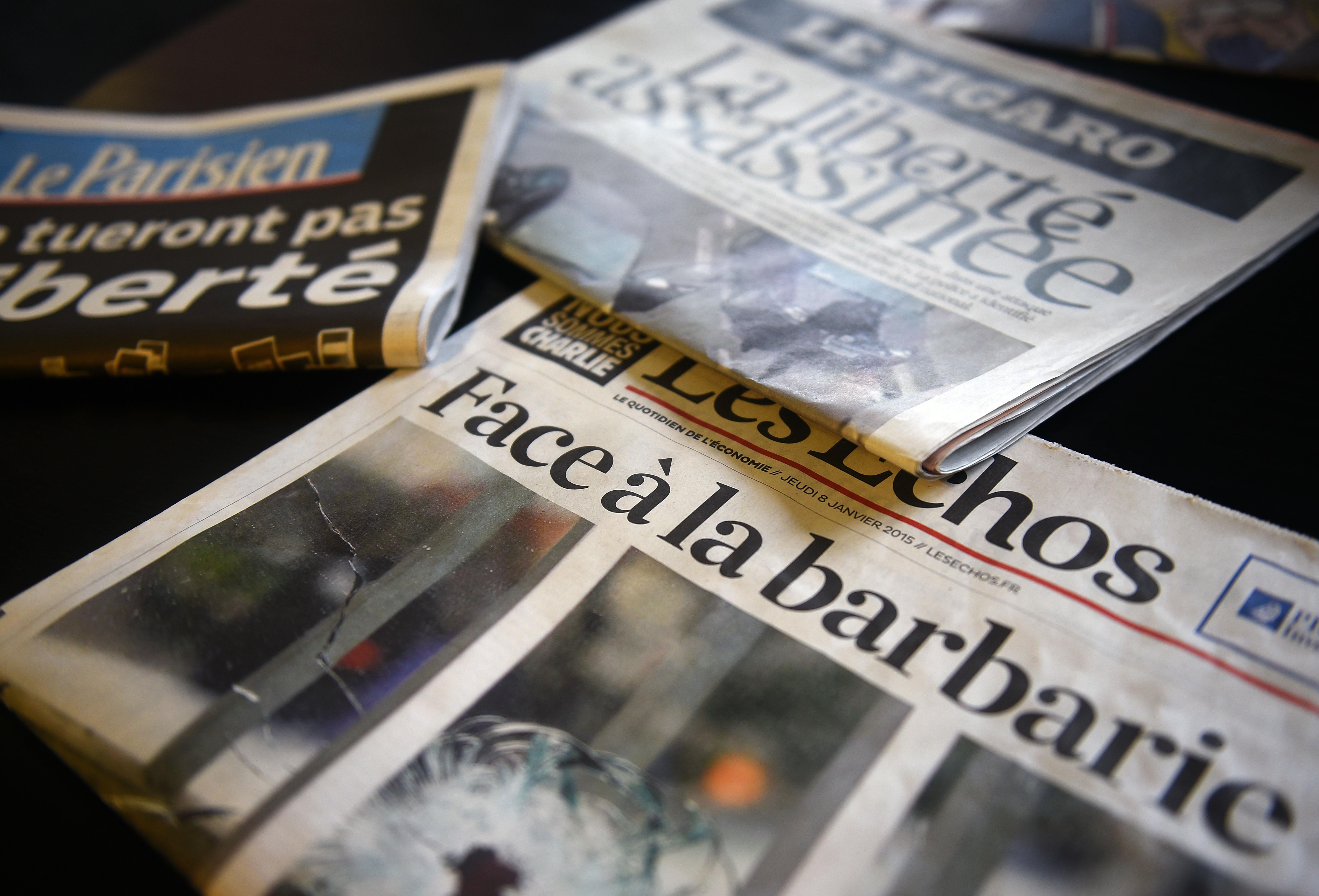While officials and analysts seem to be leaning toward the theory that the perpetrators of Wednesday’s attack on Charlie Hebdo had help from a larger terrorist organization, no group has yet claimed credit. Does this make it more likely that that the shooters were lone wolves, operating independently?
Not at all. First, we’re still in the early days. The shooters remain at large, and it’s not unusual for groups to wait before claiming credit for major operations. As Foreign Policy’s John Hudson pointed out in the aftermath of the 2013 Boston bombing, Osama Bin Laden took almost two months to claim credit for the 9/11 attacks. And as my colleague Brian Palmer noted during the speculation that surrounded the disappearance of Malaysia Airlines Flight 370, only about 14 percent of terrorist attacks get claimed at all.
Islamist groups, the leading perpetrators of terrorist attacks around the world in recent times, are generally less likely to claim credit than nationalist or extreme right- or left-wing groups, as they’re often less interested in winning concessions from their enemies than in simply destroying them. “Anonymous attacks are often taken to indicate that groups are disinterested in building grass-roots support for their movements and closed to efforts at political compromise,” wrote the political scientist Aaron Hoffman in a 2010 paper published in the Journal of Peace Research.
Still, if an international group was behind this attack, it does seem likely that we will eventually hear from it. In research presented at the American Political Science Association’s annual meeting last year, the Stanford political scientist Eric Min identified several factors that make terrorist groups more likely to claim credit for an attack. Claims, he argued, are more likely “for attacks that involve high costs (suicide and casualties), institutionally constrained states (democracy), and competitive environments.”
France is a democracy and the attack was large, but the last factor is probably the most important. Terrorists groups are more likely to claim responsibility for attacks when they’re in competition with other terrorist groups. In some cases this can even lead to multiple organizations claiming credit for the same attack. At least three Pakistani jihadist groups tried to take credit for a bombing that killed about 60 people near the Pakistan-India border in November.
At the moment, al-Qaida is competing with its rivals in ISIS on the battlefields of Syria for the loyalty of smaller jihadist groups around the world, and for recruits—including young disaffected Muslims in Western countries like the suspects in the Charlie shooting. And the delay in claiming credit would fit the pattern of al-Qaida in the Arabian Peninsula, the offshoot that French and U.S. officials have pointed to as the most likely perpetrator. AQAP waited several days before praising and claiming involvement in both the Fort Hood shooting and the attempted Christmas Day shoe bombing of 2009, the group’s most high-profile operations in the west.
If al-Qaida is indeed involved in such a successful operation against a long-hated enemy, it seems likely that it eventually will want to make sure that al-Qaida—not ISIS, not anyone else—gets the credit.
